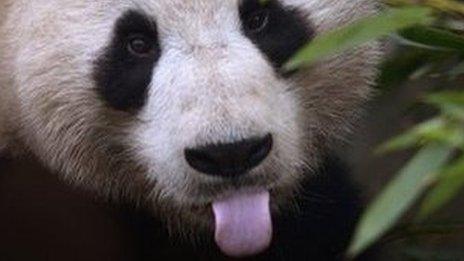Mating season approaches for Edinburgh Zoo pandas
- Published
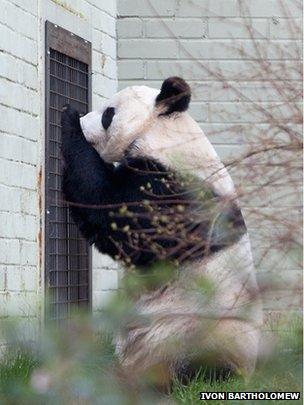
Tian Tian was starting to show signs that she was ready to breed
Keepers at Edinburgh Zoo have begun a daily monitoring of the UK's giant panda couple as mating season approaches.
The zoo said Tian Tian and Yang Guang were starting to show signs that they are ready to breed.
It is hoped the pair will produce a cub this year after disappointment last time.
They failed to mate in 2013 and although Tian Tian was artificially inseminated she lost her cub.
'Increased interest'
Panda reproduction is a notoriously tricky process, with females only ovulating once a year.
Iain Valentine from the Royal Zoological Society of Scotland (RZSS), which runs the zoo, said: "Tian Tian and Yang Guang are both in great health and condition and things are progressing nicely.
"The giant pandas are clearly showing an increased interest in one another, both pandas are fairly regularly scent marking now and we've also seen food intake increase in both pandas as they seek to drive their body weight up - all fantastic instinctive pre-breeding behaviours.
"Similar to last year, alongside our own experts, RZSS is working together with a number of global colleagues on the complex science that goes on behind the scenes.
He added: "Natural mating will be attempted, likely followed by artificial insemination as recommended by our Chinese colleagues."
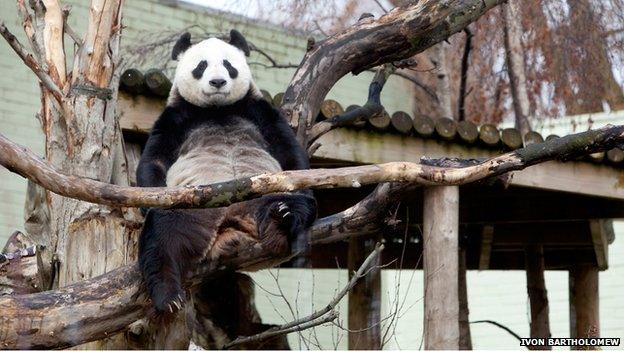
Tian Tian and Yang Guang are the first giant pandas to live in the UK for 17 years.
They arrived on loan from China in December 2011 and will remain at Edinburgh Zoo for a decade.
Zoo bosses hoped the pair would mate naturally when she came into season but ruled out putting them together last April after assessing Tian Tian's behaviour.
She was inseminated using semen from Yang Guang and frozen semen from Bao Bao, a "genetically important" panda which died in Berlin Zoo the previous year.
Last week experts began the daily monitoring of Tian Tian's hormones which will signal when she is ready to breed.
She will then have a period of just two to three days to get pregnant.
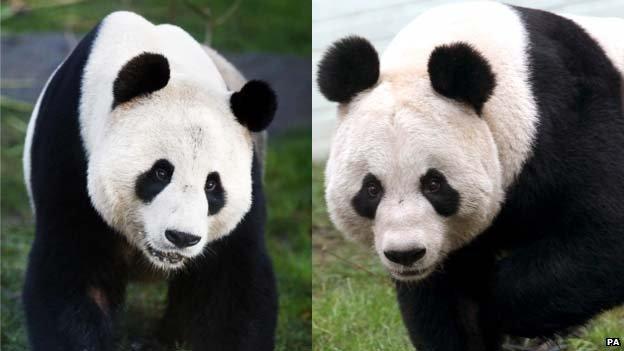
Yang Guang (left) and Tian Tian and are the first giant pandas to live in the UK for 17 years
Mr Valentine said: "As of Christmas 2013, we again began to collect urine samples from Tian Tian. These are being picked up and analysed so that we can monitor two key hormones for breeding purposes - progesterone and oestrogen.
"We're currently just waiting for the all-important crossover of hormones in Tian Tian and then when this happens it means breeding is roughly seven to 14 days away.
"This week we moved to analysing Tian Tian's urine samples each day, so it's a case of watch and wait."
The panda gestation period is typically five months and one or two cubs will normally be born.
- Published15 October 2013
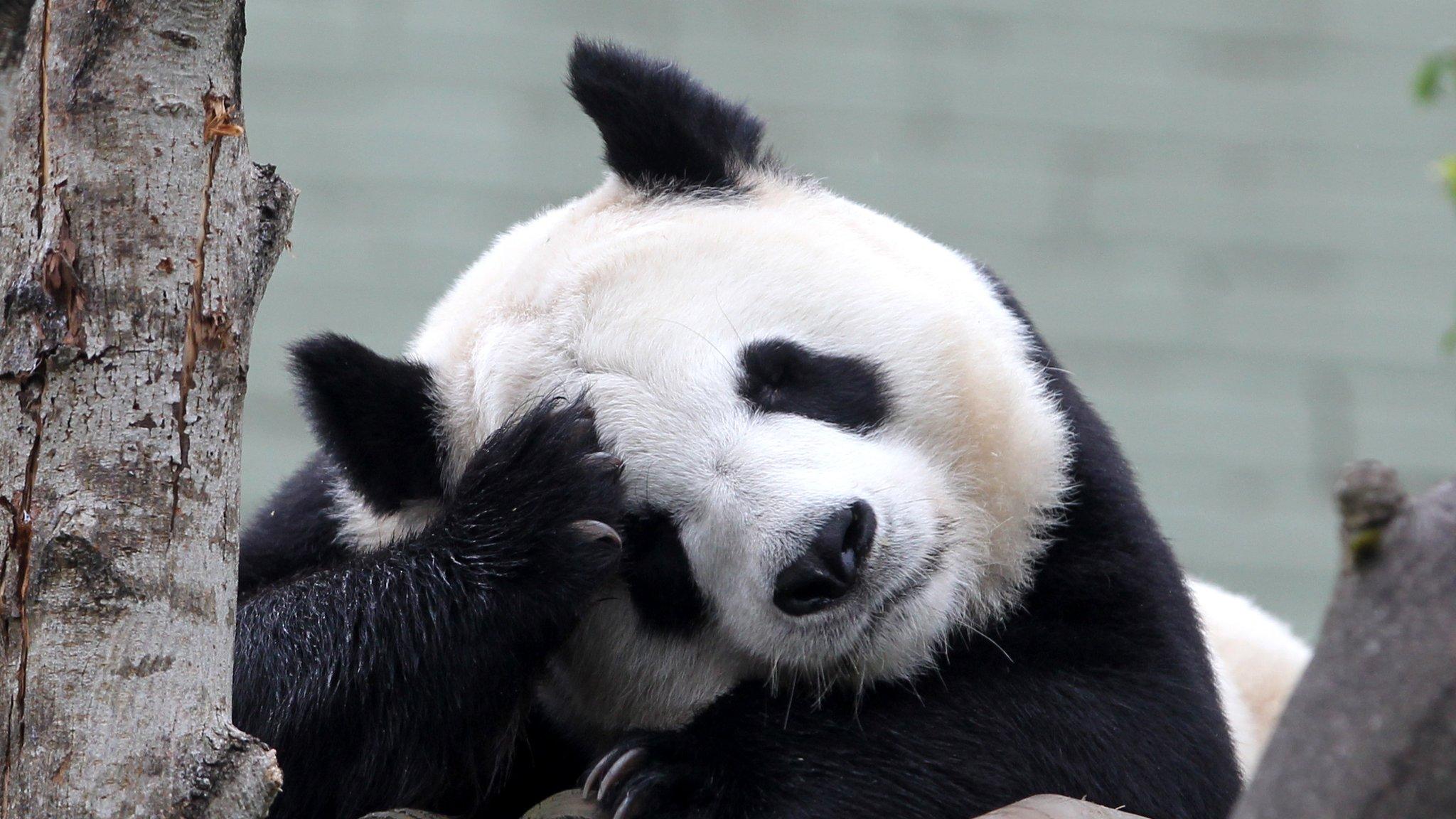
- Published9 September 2013
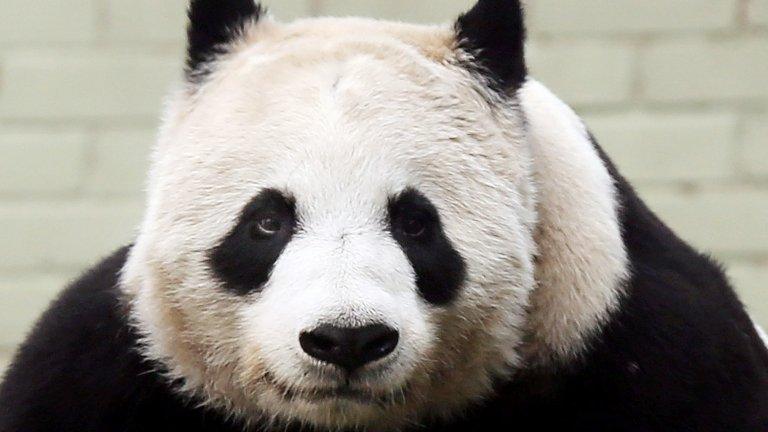
- Published26 August 2013

- Published9 August 2013

- Published9 August 2013
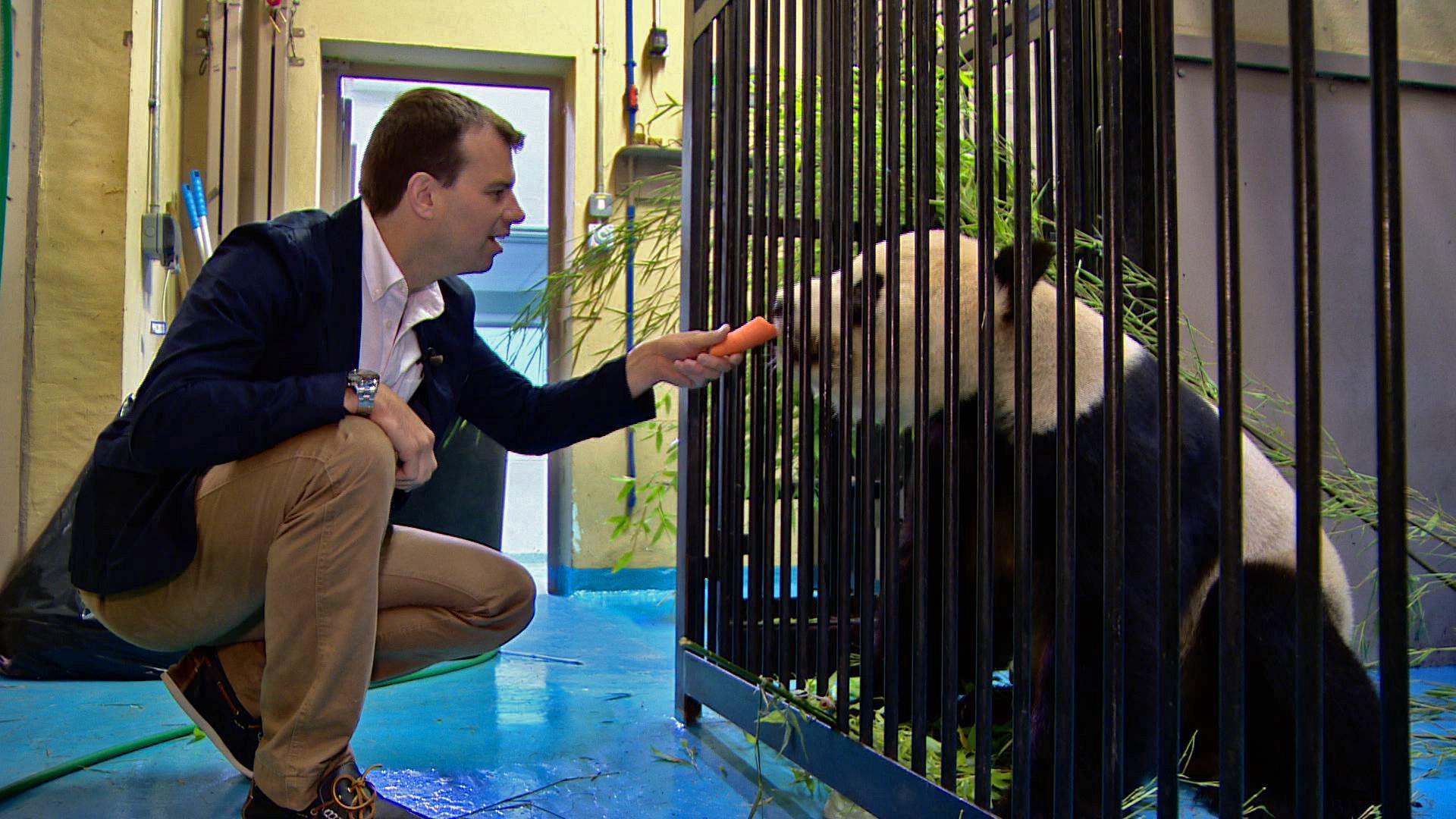
- Published12 August 2014
